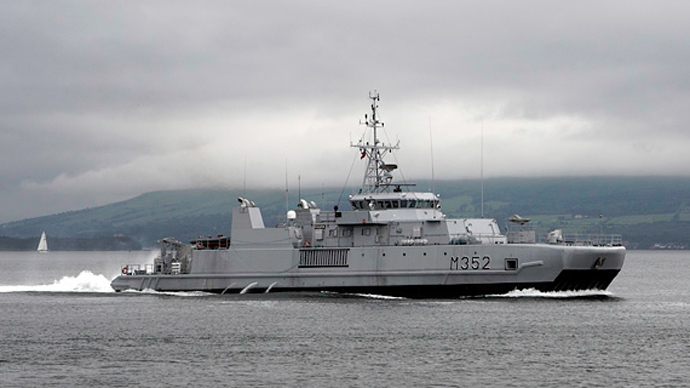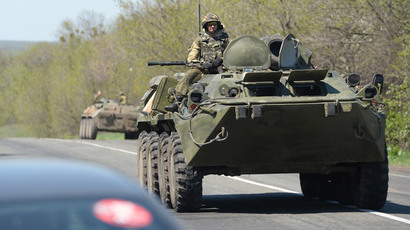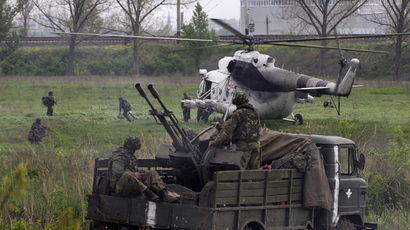NATO ships arrive in Lithuania amid rising tensions over Ukraine

A group of NATO ships has arrived in the Lithuanian port of Klaipeda to “ensure regional security,” the Lithuanian Ministry of Defense has said. Russia has already voiced its concern over the “unprecedented” buildup of NATO forces in the region.
The group is composed of 4 minesweeping ships from Norway, the Netherlands, Belgium and Estonia as well as one supply vessel. The ships will take part in intensive military drills, stopping off at various ports in the region. They will also participate in operation “Open Sprit” deactivating underwater explosives.
The Lithuanian Minister of Defense Juozas Olekas said in a statement the drills will “ensure our national and regional security and collective defense.”
The contingent of ships is not the only NATO force to have been deployed in the region recently. Last week, the United States announced the deployment of 600 soldiers who will participate in military drills in Poland, Latvia, Lithuania and Estonia to show solidarity with NATO members that border Russia.
In addition, Britain and France have sent 8 fighter jets to Poland and Lithuania to step up aerial patrol in the region. As well as the increased aerial presence, NATO has also deployed ships in the Black Sea, Baltic Sea and East Mediterranean.
Russia views this recent escalation in NATO forces so close to its border as a provocation and counter-productive in the struggle to de-escalate tensions in Ukraine. On Monday, Russia’s Minister of Defense Sergey Shoigu appealed to his American counterpart, Chuck Hagel, to cool down the rhetoric over Ukraine and work together to defuse the situation.
He denied accusations that Russia was somehow involved in inciting the unrest in eastern Ukraine. As a response to the amassing of NATO troops, Moscow declared it had been forced to begin its own military drills close to the Russian border with Ukraine.
Hagel has urged NATO’s EU members to increase their defense spending in light of the recent events in Ukraine.
"We must see renewed financial commitments from all NATO members," Hagel said in a speech on the NATO alliance to be delivered at the Wilson Center and released by the Defense Department.
Russia said that the coup-appointed government in Kiev had irreparably severed the peace deal struck on April 17 in Geneva, after it launched a special operation in the Ukrainian city of Slavyansk.
"While Russia is making efforts to de-escalate and resolve the conflict, the Kiev regime has chosen military aviation strikes on peaceful residential areas and started a punitive operation, literally destroying the last hope for the viability of the Geneva accords,” Dmitry Peskov, President Vladimir Putin’s spokesperson, said in a statement on Friday.
The Ukrainian army began a special operation against anti-government activists in the eastern town of Slavyansk on Friday morning. The city was blockaded by the Ukrainian military, with helicopters and APCs deployed to crack down on self-defense forces. Moscow has urged an immediate halt to the “punitive operation” and violence on Ukrainian civilians.














